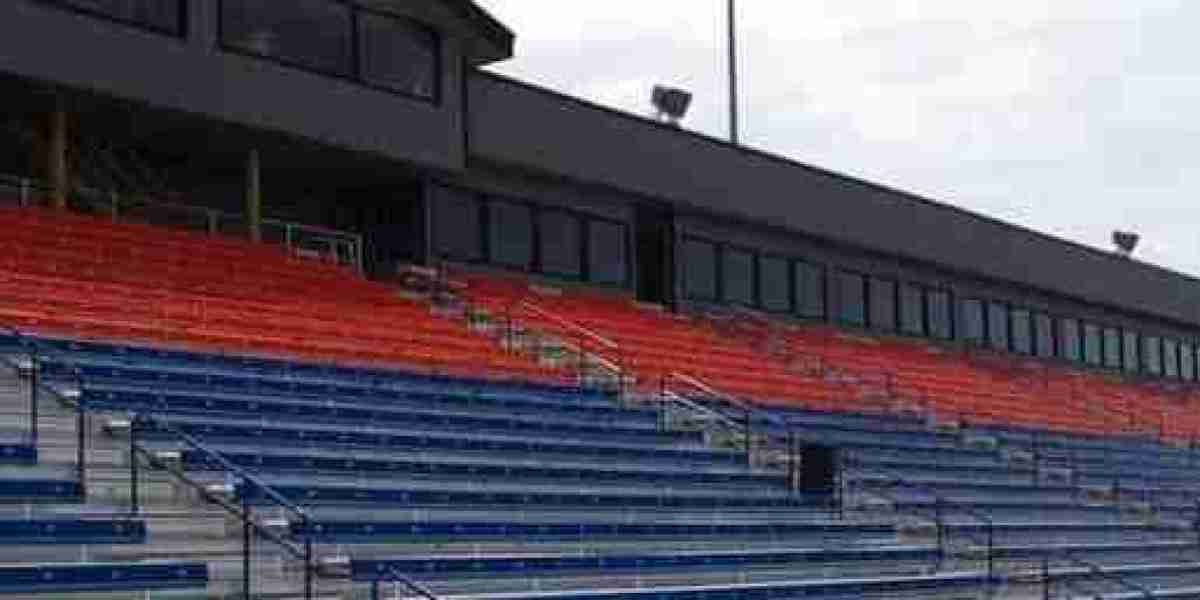A school auditorium, bleachers are essential for accommodating spectators and creating an inclusive environment. Purchasing new bleachers can be expensive, especially for smaller organizations or venues with limited budgets. Used bleacher seats for sale offer a cost-effective solution, but several key factors must be considered before making a purchase. In this article, we'll explore what you need to know before buying used bleachers to ensure you get a quality product that meets your needs.
Understanding the Benefits of Used Bleachers
Buying used bleachers has several advantages. The most obvious is cost savings. Used bleachers are often significantly cheaper than new ones, allowing you to stretch your budget further. Additionally, used bleachers may already have some wear and tear, meaning you won't have to worry as much about the initial scuffs and scratches that come with heavy use.
Another benefit is environmental. By purchasing used bleachers, you're reducing waste and contributing to sustainability. Instead of sending old bleachers to a landfill, you're giving them a second life, which can be a crucial selling point for environmentally conscious organizations.
Factors to Consider When Buying Used Bleachers
While used bleachers offer several benefits, some important factors must be considered to ensure you're getting a good deal and a safe product.
Safety and Compliance
Safety should always be the top priority when purchasing used bleachers, new or used. Before buying used bleachers, check whether they comply with current safety standards. The Consumer Product Safety Commission (CPSC) has specific guidelines for bleacher safety, including guardrails, step spacing, and stability. Ensure the used bleachers meet these standards to avoid accidents and liability issues.
If possible, request safety inspection records or maintenance logs from the seller. These documents can provide insights into how well the bleachers were maintained and whether any safety issues have been addressed. If you can't obtain these records, consider hiring a professional inspector to assess the bleachers before finalizing the purchase.
Material and Durability
Bleachers can be made from various materials, including aluminum, steel, and wood. Aluminum is lightweight and resistant to rust, making it a popular choice for outdoor bleachers. Steel is sturdy and durable but requires regular maintenance to prevent rust and corrosion. Wood can be aesthetically pleasing but is generally less durable and requires more upkeep.
Consider where and how the bleachers will be used. Aluminum or treated steel may be the best options if they're intended for outdoor use. If they're for indoor use, steel or wood could be suitable. Examine the bleachers for wear and tear, rust, or damage. These issues can impact safety and durability, so make sure the bleachers are structurally sound before purchasing.
Size and Capacity
Before buying used bleachers:
Determine the size and capacity you need.
Measure the available space to ensure the bleachers will fit comfortably without overcrowding.
Consider the maximum capacity for your venue and provide the bleachers that can accommodate the expected number of spectators.
Bleachers come in various sizes, from small portable units to large permanent installations. Portable bleachers are ideal for flexible venues, while permanent bleachers are better suited for fixed locations. Determine your specific needs and choose bleachers that align with your requirements.
Accessibility and Ease of Use
Accessibility is a crucial factor when choosing bleachers. Ensure the bleachers are designed with accessibility in mind, with ramps or accessible seating options for individuals with disabilities. This consideration is essential for inclusivity and helps meet legal requirements, such as those outlined in the Americans with Disabilities Act (ADA).
Additionally, consider how easy the bleachers are to set up, disassemble, and move. If you need flexibility, portable bleachers with wheels or folding mechanisms may be the best choice. For permanent installations, ensure the bleachers can be securely anchored to the ground to prevent accidents.
Reputation of the Seller
Working with a reputable seller is essential when buying used bleachers. Look for sellers with positive reviews and a history of selling quality products. Ask for references or testimonials from previous customers to gauge their experiences.
Only sellers are willing or able to provide information about the bleachers' history, maintenance, or safety compliance. A trustworthy seller should be transparent and open to answering your questions.
Pricing and Budget
While used bleachers are generally more affordable than new ones, it's essential to understand the pricing structure. Compare prices from different sellers to ensure you're getting a fair deal. Remember that additional costs, such as transportation, installation, or repairs, may arise. Factor these costs into your budget to avoid surprises.
Warranty and Support
Finally, inquire about any warranties or support services with the used bleachers. Some sellers offer limited warranties on used products, while others may provide support for installation or maintenance. A warranty can give you peace of mind and protect you from unexpected expenses if issues arise.
Conclusion
Using bleachers can be a cost-effective and environmentally friendly way to equip your venue with spectator seating. However, before making a purchase, it's essential to consider the safety, durability, size, accessibility, and reputation of the seller. By following the guidelines outlined in this article, you can ensure you're getting a quality product that meets your needs and provides a safe and enjoyable experience for your spectators.



